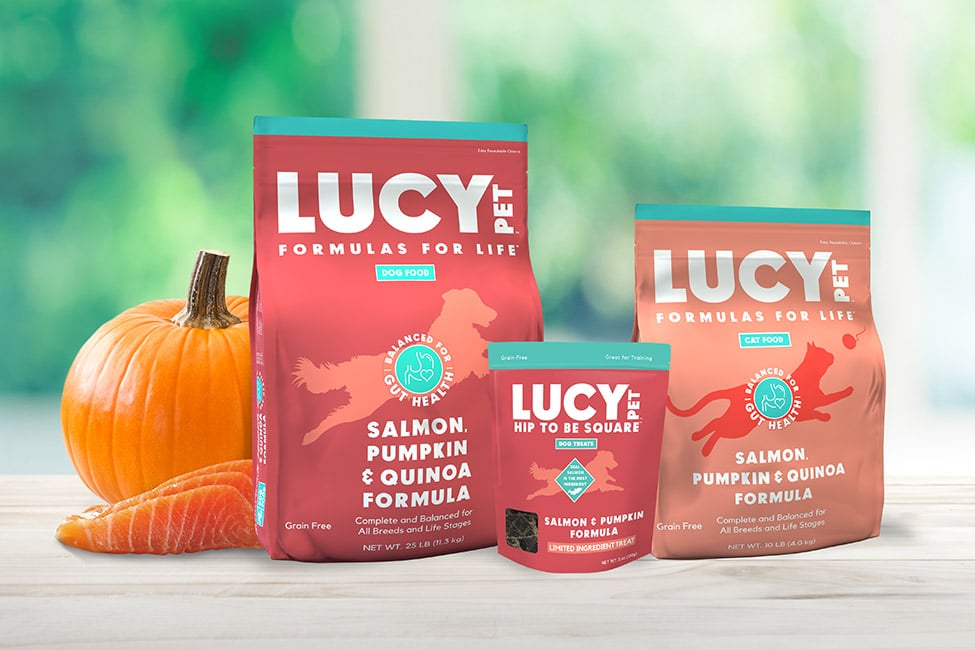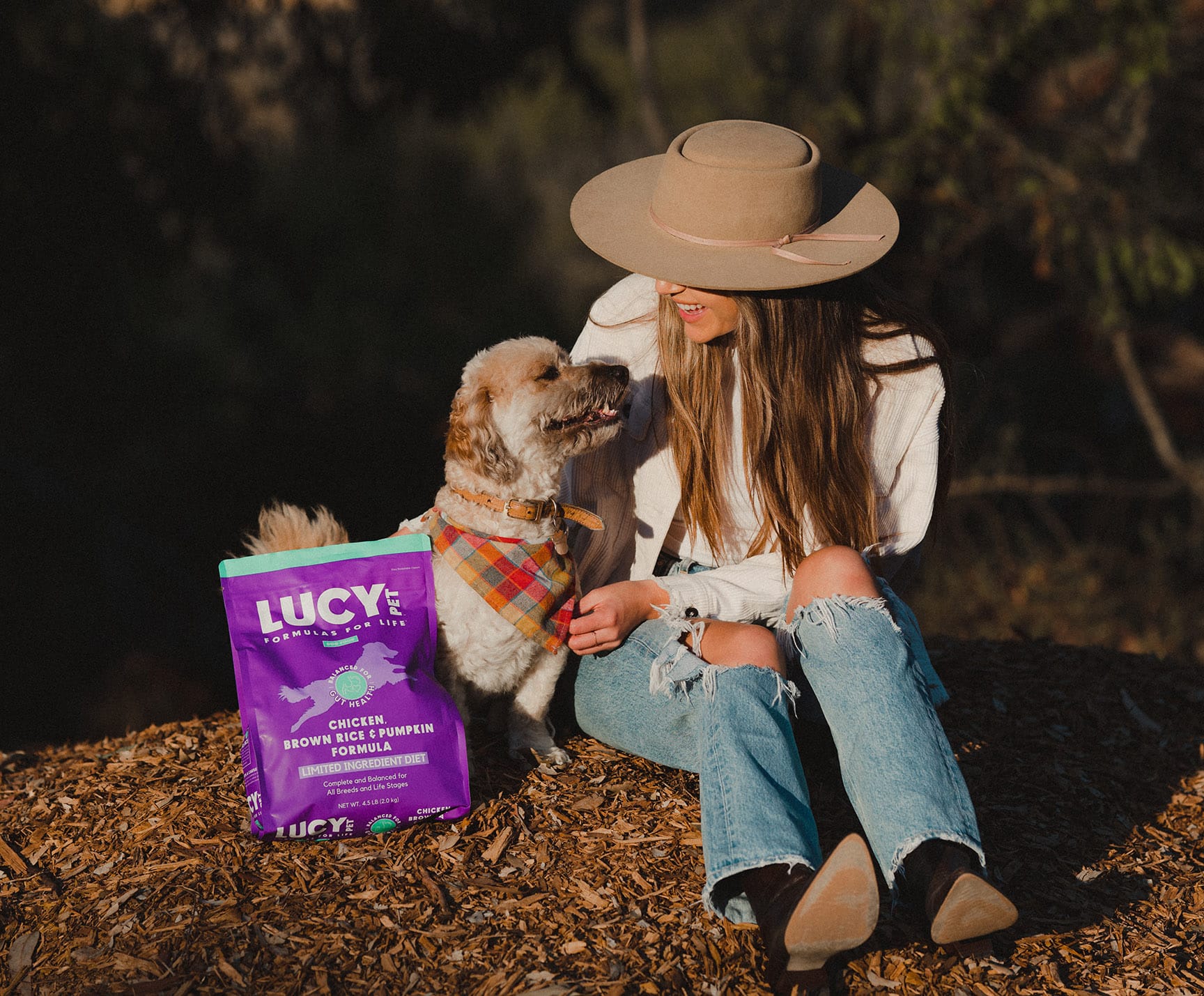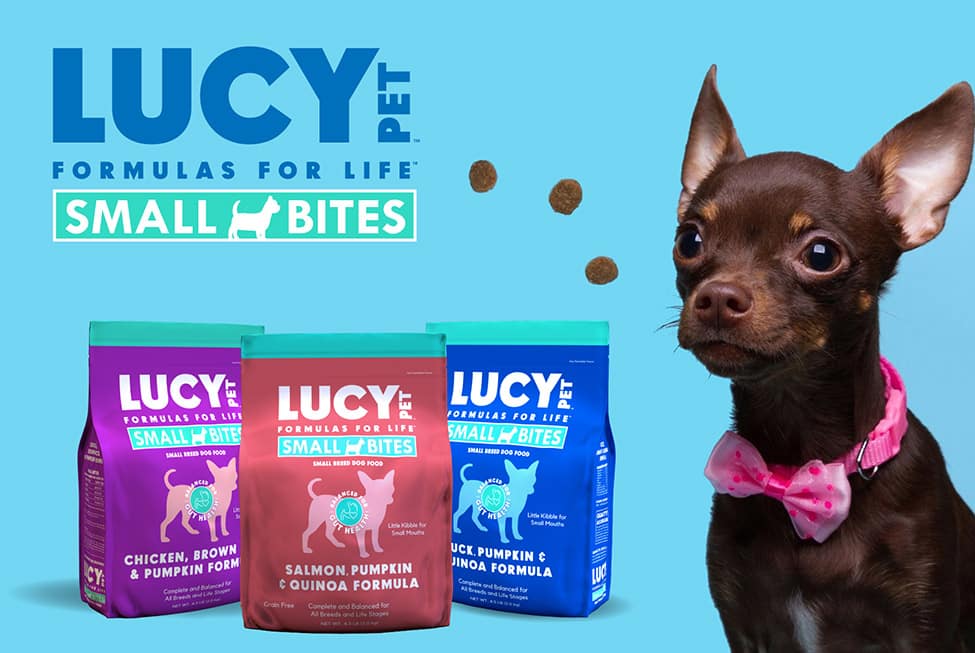
The Benefits of Salmon Dog Food
Dogs have a lot of nutritional demands in order to stay in peak condition. With their bodies only producing roughly half of the nutrients they need to live, their dog food is extremely important when it comes to their overall health. Just as in humans, high-quality dog food ingredients will deliver the best results for supporting canine immunity health, building strength and muscle, and delivering the energy they need to run, play, and, depending on the dog, work.
As a pet parent, you want to give them the best of the best dog food– but what exactly does that look like? With dozens or even hundreds of different dog food options for your dog’s diet, sometimes it helps to narrow your search to a specific, beneficial ingredient – such as salmon, for instance. Because salmon isn’t as easily or cheaply available as other protein sources like beef or chicken, its very presence in dog food signals better quality. Salmon for dogs and salmon for cats is an excellent addition to a dog or cat’s diet and works well when combined with other premium ingredients – particularly when it’s supplemented by treats of the same caliber.
Is Salmon Good For Dogs and Cats?
We never recommend feeding your pet home-cooked diets, but we recognize that from time to time we humans all like to treat our four-legged family members with something else besides dog food or cat food.
Unlike a lot of the news buzz for “human” foods, the properties of pet-safe foods generally stay stable. For example, while food scientists may go back and forth on the health benefits of red wine or coffee for human diets, pet food scientists agree that proteins like meat and fish are a good option for canines. A large part of this positive association between dogs and salmon or cats and salmon comes because these fish resemble what dogs and cats can eat in the wild, where the nutrient demands on energy and health are naturally high. The trick to “translating” that diet to a domestic dog or cat with slightly different energy needs lies largely in making that protein consistent – that’s why kibble-based diets work so well. While an individual salmon might be more or less meaty, once it is transformed into a standardized kibble it’s both safer and easier to measure for a dog owner.
Safety Concerns: Salmon For Dogs and Cats
When feeding your pup salmon, there are a few things you should bear in mind:
- Raw salmon isn’t suitable for dogs or cats. Even if you’ve caught the salmon yourself from a clean water source, many parasites are impossible to detect. The American Kennel Club (AKC) notes that raw salmon could potentially be carrying a parasite called neorickettsia helminthoeca which causes salmon poisoning disease – fatal in 90% of dogs that go undiagnosed and untreated. The parasite that causes salmon poisoning in dogs can still be present even if other nearby animals ingest the raw salmon without issue: salmon poisoning disease is unique to canines.
- Fresh salmon can also have deadly bones present. A fishbone isn’t a minor inconvenience for a dog or cat – it’s extremely dangerous and could puncture their throat, stomach, and other delicate internal organs. Salmon bones are extremely thin and brittle, which also poses a choking hazard. Even cooking won’t remove the danger of these pin bones: because they’re so thin, they can be challenging to spot and could survive the cooking process intact. If you’re feeding your dog salmon, the safest way is to introduce salmon that has been properly processed into ready-to-eat pet food.
- The salmon you give your dog or cat should be unflavored and unseasoned. While you may like a good pinch of salt and herbs over a fillet sauteed in oil, all of these additions can upset your dog’s stomach and cause digestive issues. The same rule applies for canned salmon, which is often packed in oil: the safest way to feed your pup salmon is to grab a form already approved for canine nutritional and safety needs. This is particularly true if you cook your salmon with “problematic” ingredients like onions and garlic: both can be dangerous for dogs, even if they’re only cooked in the same pan.
Why Is Salmon Cat & Dog Food Good For Pets?
Salmon is good for dogs and cats for many of the same reasons it’s beneficial for humans: it’s high in protein and it’s a great source of Omega-3 fatty acids. In dog foods, this benefit manifests as a lush, healthy coat with plenty of gloss and excellent skin quality. The long-chain fatty acids found in salmon-based dog foods also have an interesting side benefit: they’re anti-inflammatory. This means salmon dog food for dogs with allergies, can fight certain allergy-based skin reactions, such as seasonal allergies that cause rashes, dryness, and even fur loss. They’ll be sure to thank you when they get some relief from the itchy, flaky, irritated skin that often comes along with allergies in dogs and cats.
Salmon also mimics a natural diet, allowing your pet to get the protein and nutrients they need without resorting to the fillers and grains found in so many low-quality cat and dog foods. Options that bring together salmon with other natural ingredients – such as Lucy Pet’s salmon, pumpkin, and quinoa dog food kibble and cat kibble– are an excellent way to balance your dog’s diet with protein and nutrients. Not only is salmon an excellent source of protein, but quinoa and pumpkin for dogs and cats are also great ingredients that can help with digestive issues.
And, when it comes to weight control for dogs and cats, salmon is a good lean protein, much like chicken. It offers your dog or cat’s body the fuel it needs to stay active without risking canine or feline obesity, particularly if dog food is doled out carefully. While free-feeding practices always carry some risk of overeating, if a dog or cat has plenty of interaction and toys, they’re less likely to eat out of boredom. Additionally, a high-quality kibble with a high protein content makes them feel full faster and for a longer period of time – that means dogs don’t feel as much of a need to bolt down their food.
How Should I Feed My Dog Salmon?
Now that you know why your dog or cat should have salmon, how should you feed it to them? You already know that any salmon you offer needs to be cooked and ideally processed into a dog or cat-ready food. However, salmon-based kibble isn’t the only option for adding salmon into your dog’s diet: treats are an excellent supplement.
Good
- Salmon jerky dog treats: These dog treats are made in the same way that beef and chicken-based treats are; namely, the protein is mixed with fillings and flavorings to make a paste. This paste is then baked or formed into uniform treats for your dog to eat. While these do contain salmon, they aren’t necessarily the best choice: intensive processing can minimize some nutritional benefits and they also usually contain grains, which cause stomach sensitivities and allergies in some dogs.
- Salmon skin dog treats: Whether the salmon skin comes off of a filet you’ve just cooked yourself, or from a bag of dried salmon skin dog treats, salmon skin is safe for dogs to eat. However, the same caveats apply to fresh salmon skin as salmon itself: be sure the skin hasn’t been cooked with harmful ingredients or oils. While dogs love eating your scraps, they may have food allergies or sensitivities to some of the extra ingredients used in the cooking process. Additionally, be selective about how often you feed your dog these types of treats; the skin from salmon is very fatty and can contribute to canine obesity. On an aesthetic note, these treats may also be a bit stinky or leave an oily residue on furniture or carpets.
Better
- Dried salmon dog treats: This type of dog treats may look a little odd in the package, but it’s absolutely safe to give to your dog. Made by making true “jerky” from boneless filets, the drying process makes the fish uninhabitable to the parasites that cause salmon poisoning in dogs. While these are a good choice for supplementing your pup’s diet, they have the same issues as salmon skin treats: namely that they can be very stinky once your dog starts eating them, and they can leave an oily residue on your hands or furniture.
Best
- Grain-free salmon dog treats: The best combination of “clean” (both literal and nutrition-wise) dog treats with salmon, these varieties are a favorite of both dogs and owners. Options like Lucy Pet’s Hip to Be Square™ Salmon and Pumpkin Dog Treats keep the mess, smell, and oily residue to a minimum, while the limited ingredient formulation amps up the nutrition profiles of the treats.
Even if your home is hundreds of miles away from good salmon fishing, your dog can still reap the many benefits of this versatile, nutritious fish. Picking the right salmon-based dog kibble and supplementing with high-quality salmon dog treats will ensure they have plenty of omega-3 fatty acids in their diet to support coat, joint, and allergy health from the inside out. If you’ve been avoiding wading into these fishy waters over misplaced health, safety, or odor concerns, there’s never been a better time to dive into salmon for dogs and cats.
Sources Cited:
- “The Power of Protein.” PetMD.com, (no publish date), https://www.petmd.com/dog/nutrition/the_power_of_protein. Accessed December 16, 2019.
- Cosier, Susan. “Studies Show that Wolves Eat Seafood.” Audubon.org, February 15, 2011, https://www.audubon.org/news/studies-show-wolves-eat-seafood. Accessed December 16, 2019.
- Pask, Elizabeth; Scott, Laura. “10 “People” Foods for Dogs.” Modern Dog (moderndogmagazine.com), (no publish date), https://moderndogmagazine.com/articles/10-people-foods-dogs/1896. Accessed December 16, 2019.
- Mendoza, Dr. Miguel A., DVM. “Ask The Vet: Can Dogs Eat Salmon?” Barking Royalty.com, January 21, 2019, https://barkingroyalty.com/can-dogs-eat-salmon/. Accessed December 16, 2019.
- “The Benefits Of Salmon Oil For Dogs.” Redbarn.com, (no publish date), https://www.redbarn.com/the-benefits-of-salmon-oil-for-dogs/. Accessed December 16, 2019.
- “Salmon Poisoning Disease.” Washington State University (Vetmed.wsu.edu), (no publish date): https://www.vetmed.wsu.edu/outreach/Pet-Health-Topics/categories/diseases/salmon-poisoning. Accessed December 16, 2019.
- 5 Benefits of Pumpkin for Dogs: https://www.lucypetproducts.com/blog/5-benefits-of-pumpkin-for-dogs





Leave A Comment
You must be logged in to post a comment.